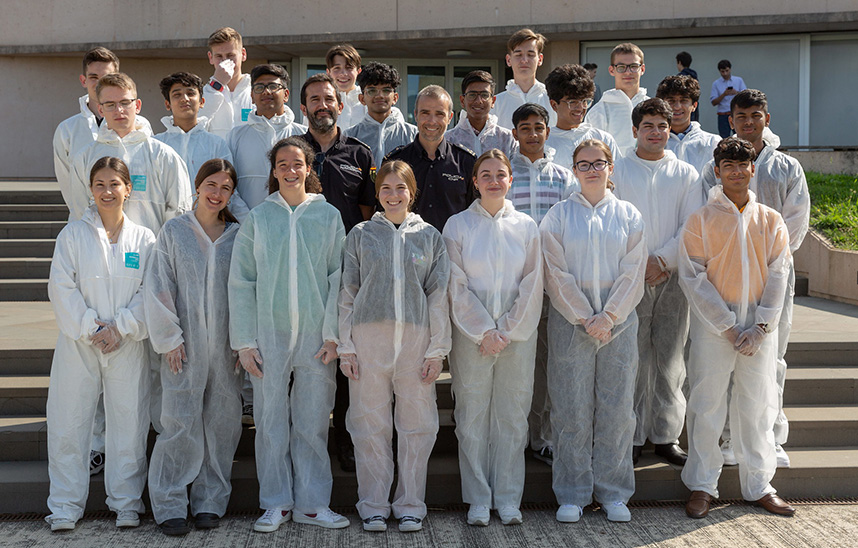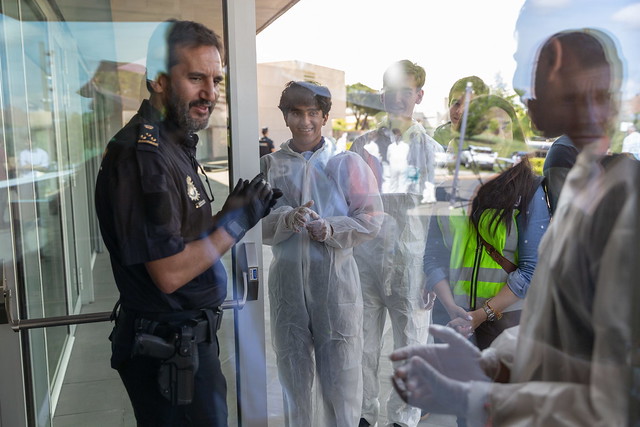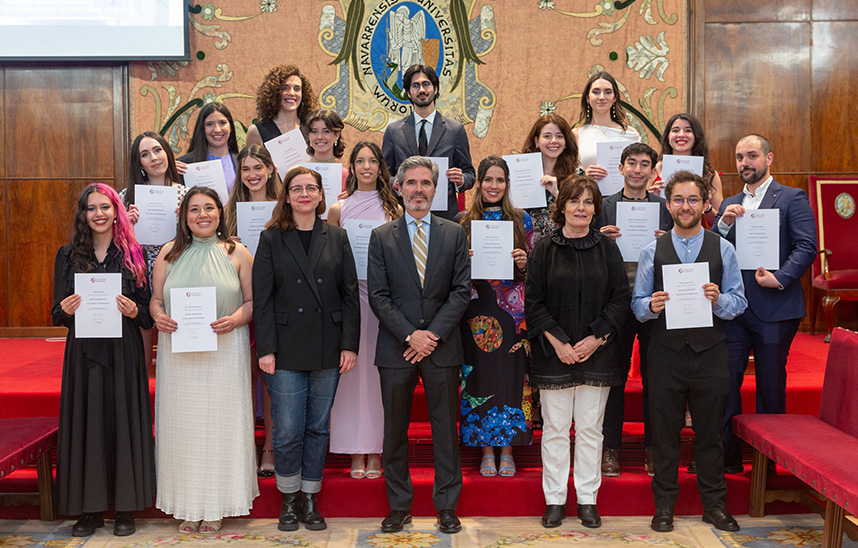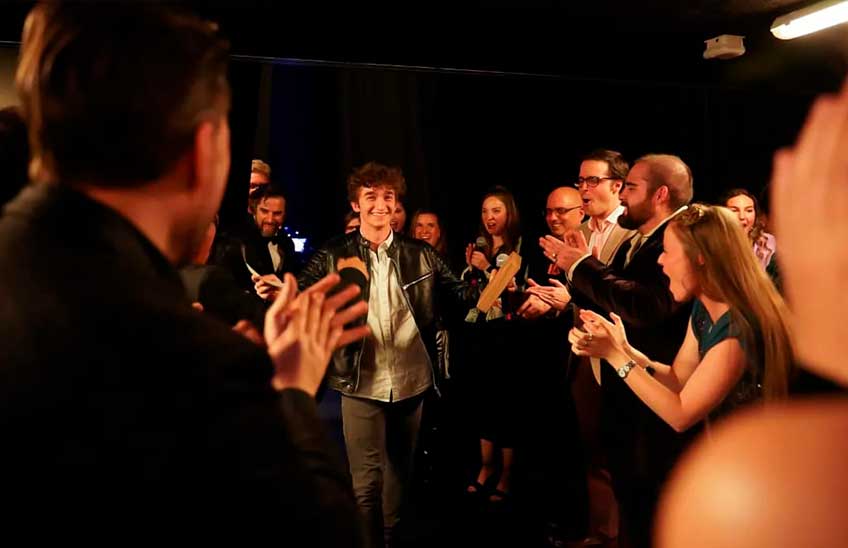The MUN and the School of Sciences of the University host the International Edition of Forensic Science, project promoted by the high school Irabia-Izaga at partnership with the national police.
A group of students from Irabia-Izaga, together with students from schools in India and Poland have participated in the simulation of a police research of the theft of Pablo Picasso's work 'Mousquetaire. Tête'.

PhotoManuelCastells/
As investigators of the Scientific Police, dressed in vests, tyvek (white overalls) and regulation gloves, a group of students of 1st of high school program of high school Irabia-Izaga of Pamplona together with students from schools in India and Poland have participated this morning in the police research of the simulated theft of the work Mousquetaire. Tête ( 1967), by Pablo Picasso, at the University Museum of Navarra.
After the simulation last October of the research simulation of the theft of Mark Rothko's Untitled (1969), the project educational has returned to campus of the University of Navarra to experience its international phase. The activity, promoted by Irabia-Izaga, has counted with the partnership of the National Police, the MUN and the School of Sciences of the University of Navarra.
After the explanation of the activity by the National Police officers, the young people, divided into small groups, went to entrance hall of the Theater where the theft of this piece from the MUN Collection allegedly took place. There, accompanied by members of the Scientific Police, they collected samples of soil, drugs and fibers to later extract DNA from biological samples and genetic profiles, among other analyses, to try to identify the perpetrators of the crime.
To carry out this work they have employee instruments of the professional police technical inspection kit: luminol, fingerprint developers, DNA collection... They have also had the opportunity to draw up the planimetry and sketches that, in a real case, would accompany the police report. The fact is that Picasso's work is on loan until the end of June to the Museum of Fine Arts of A Coruña, where it is currently on display.
With the evidence already collected, on Wednesday and Thursday, the young researchers will visit the laboratories of the School of Sciences of the University of Navarra to analyze them. To conclude the project, on Friday, June 9, at 12:00 hours, there will be a ceremony at submission to award diplomas to the participants. It will be held at the School of Sciences and will be attended by academic authorities and representatives of the National Police.
Steam Skills
The goal of this project is to encourage student body the development of STEAM (Science, Technology, Engineering, Arts and Mathematics) skills. Students put on internship the knowledge they acquire in the different scientific and technical disciplines to analyze the evidence collected at a crime scene and reach conclusions. This allows them to relate the contents of biology, geology, physics and Chemistry in the context of the research criminal. They also acquire teamwork skills, develop research skills and creative and critical thinking. In this way, they experience a more comprehensive learning and transform the laboratory into a space of partnership linked to real life.





